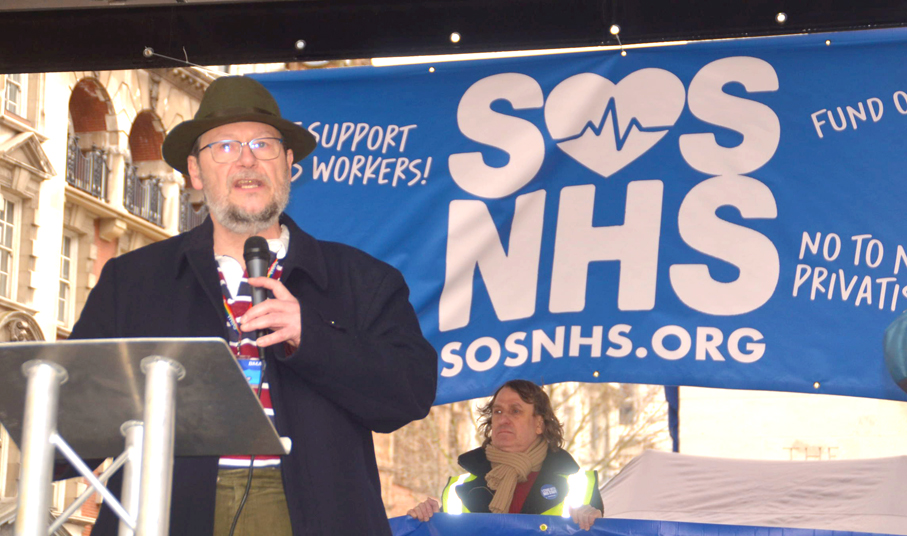WORKERS blame the government for the 7.7m-long waiting lists in England, finds a survey.
As doctors in England begin the longest period of combined industrial action by consultants and junior doctors yet, a new survey findings show that government attempts to blame medics for cripplingly long waiting lists have not convinced the public.
42% of the public blame the government for the increase in waiting lists for elective treatment, which have risen from 2.6 million in 2010 to almost 7.7 million in 2023.
This is almost three times the number who blame striking doctors (15%).
Especially concerning for the government as it heads into its annual conference will be the finding that more than a fifth of 2019 Conservative voters (22%) blame it for the current dire situation of waiting lists in England.
The Prime Minister has repeatedly used striking doctors as scapegoats for his failure to bring down waiting lists, one of his five pledges for 2023.
However, with waiting lists having increased by 5 million in the 13 years of this government, the public’s patience for such excuses is clearly limited.
Ahead of the joint junior doctor and consultant rally outside the Conservative party conference in Manchester this week, BMA chair of council Prof Phil Banfield said: ‘Doctors are fed up of being told we are the problem with the NHS.
‘Wanting to be valued for our expertise the same as we were in 2008 is not a radical demand: in fact, it is essential to having the workforce needed to bring down waiting times.
‘It is not fair for the government to continue to blame doctors or other healthcare workers for their own failure to properly resource the health service in England.
‘What we see today is that the public largely sees through that excuse: many more appointments and operations are cancelled outside the strike days because of a shortage of beds, staff or operating capacity due to the relative chronic underfunding.
‘We don’t want to be on strike, we don’t want to have to protest at party conferences, but we do want doctors to be recognised as the highly skilled practitioners of medicine that they are.
‘We want to be serving our patients. But without the staffing levels, pay and conditions that lead to doctor retention, the cost and consequences of waiting lists will continue to get worse and worse; we feel that we have no choice but to take this action, because this government has ignored doctors and patients for so long.
‘We need a demonstrable drastic change in attitude from government – no more excuses, no more reckless ultimatums, and no more empty words. If Mr Sunak and Mr Barclay simply come outside and meet us with a credible offer, we can start finding a solution that ends these strikes right there and then.’
